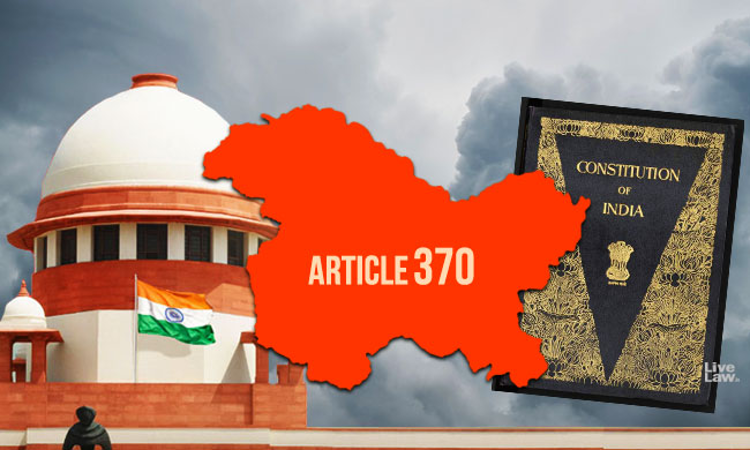
Image Source: livelaw.in
Article 370 of the Indian Constitution, which granted a special status to the state of Jammu and Kashmir, has been a topic of extensive debate and contention. Its abrogation in 2019 brought significant changes to the region's political and social landscape, impacting various facets of life in the erstwhile state.
Historical Context
To understand the impact of the resolution of Article 370, one must delve into the historical context. The provision granted Jammu and Kashmir a unique autonomy, allowing the state to have its own constitution, a separate flag, and decision-making powers except in certain matters like defense, communications, and foreign affairs. However, this autonomy also created complexities in governance and led to separatist tendencies.
Impact on Terrorism
One of the critical aspects affected by Article 370 was the rise of terrorism in the region. The special status provided a fertile ground for separatist ideologies and external interference, resulting in decades of turmoil and violence. The revocation aimed to integrate Jammu and Kashmir more closely with the rest of India and tackle the menace of terrorism.
Challenges and Opportunities
However, the aftermath of the resolution presented a mix of challenges and opportunities. While it aimed to bring stability and development to the region, concerns were raised regarding human rights, the restoration of normalcy, and the welfare of the affected populace. The rehabilitation and justice for victims of terrorism became crucial aspects in this transformation.
UPSC Perspective
From a UPSC standpoint, understanding the intricacies of Article 370's abrogation and its ramifications is crucial for aspirants. It highlights the complexities of federalism, constitutional provisions, and their impact on governance and security. Questions related to these issues have been recurrent in the examination, emphasizing the importance of a comprehensive understanding.
Conclusion
In conclusion, the resolution of Article 370 was a significant step in reshaping the dynamics of Jammu and Kashmir. However, it also underscores the necessity of addressing the grievances and seeking closure for victims of terrorism. Balancing security imperatives with humanitarian concerns remains a pivotal challenge, requiring a nuanced approach and sustained efforts.
As UPSC aspirants navigate through the evolving landscape of India's polity and governance, the case of Article 370 stands as a testament to the complexities and responsibilities associated with constitutional amendments and their impact on the nation's unity and integrity.